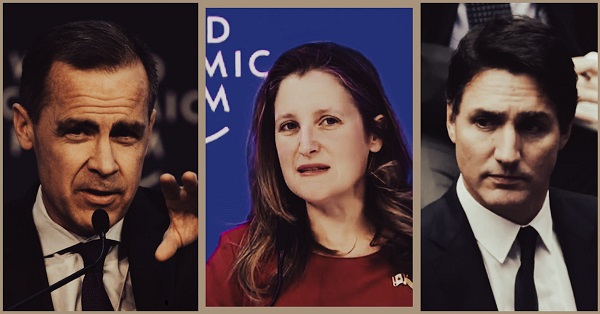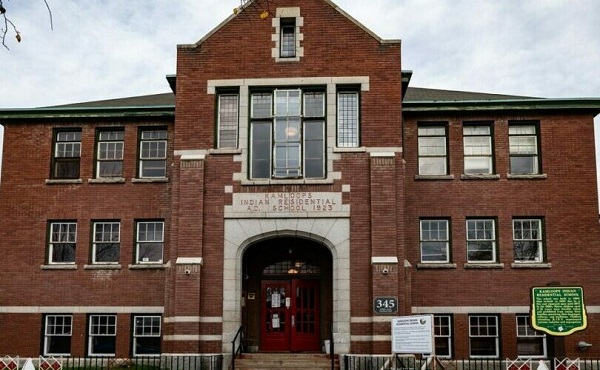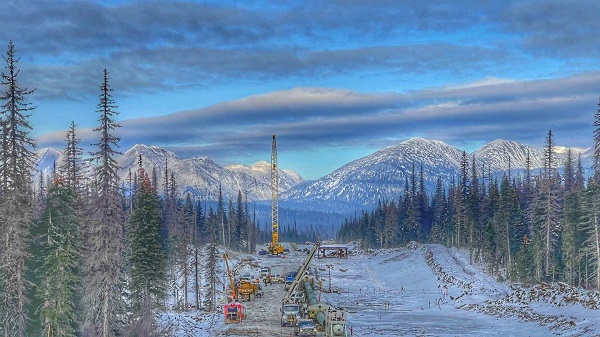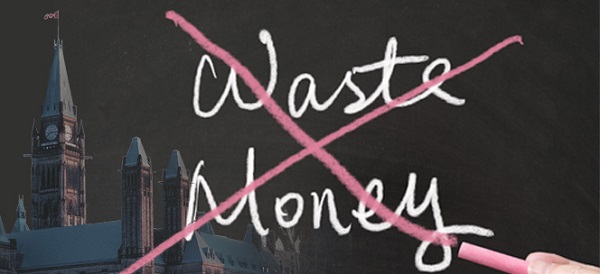Uncategorized
Wisconsin police say no charges in explosion that killed 1

SUN PRAIRIE, Wis. — Miscommunication and an improperly marked gas main were to blame for an explosion last summer that killed a Wisconsin firefighter, injured 11 other people and
The July 10 blast that rocked downtown Sun Prairie happened about 40 minutes after a subcontractor who was installing fiber communication lines struck the gas main, Patrick Anhalt, the police chief of the southern Wisconsin city, said at a news conference.
Police, firefighters and other emergency personnel raced to clear the area, including firefighter Cory Barr, who owned a downtown restaurant along with his wife, Abby. Barr was off duty, but he rushed to the scene to help evacuate people and was leaving his restaurant with another firefighter when the explosion occurred.
Barr was killed in the blast and 11 other people, including five other firefighters and a police officer, were injured. Among the six businesses that were destroyed was the Barrs’ tavern, the Barr House. One home was also destroyed.
Authorities released dashcam video Thursday that was taken from a squad car that was parked about half a block away from the site. It shows what appears to be five utility workers in hard hats and reflective vests crossing the street as the building erupts in a massive explosion. They run away as debris rains down and a plume of smoke rises.
Companies working to install the underground fiber-optic line exchanged and relied upon “incomplete and inaccurate information,” Anhalt said. Police, the county district attorney, state fire marshal and Wisconsin attorney general’s office all agreed that criminal charges weren’t warranted, he said.
The chief blamed the accident on “miscommunication” but didn’t explain what exactly happened or whether such a mistake can be prevented from happening again. He said investigators conducted 67 interviews and examined 45 pieces of evidence and 400 pages of documents during their five-month probe.
Neither Anhalt nor any of the other officials who were at the news conference fielded questions, but they did make public a redacted copy of the investigation report.
Abby Barr did not immediately reply to a message Thursday seeking comment about the decision not to criminally charge anyone. According to WKOW , she filed a wrongful-death lawsuit Thursday naming VC Tech, Bear Communications, USIC Locating Services and WE Energies as defendants. Two firefighters who were injured, Ryan Welch and Greg Pavlik, also filed suits Thursday with the same companies listed as defendants.
WE Energies spokesman Brendan Conway said the Milwaukee-based company had not received or reviewed the lawsuits, but does not comment on pending litigation.
Sun Prairie, a city of about 30,000, is just to the east of Madison, Wisconsin’s capital city.
In a search warrant request in which investigators were looking for evidence to support a second-degree reckless homicide charge, authorities said a worker for Wisconsin-based USIC, an underground utility locating firm, failed to properly mark a natural gas line prior to the explosion.
Anhalt said Verizon Wireless contracted with Bear Communications for the fiber optic installation project. Bear Communications first subcontracted with Jet Underground, but then changed subcontractors to Michigan-based VC Tech, he said.
VC Tech proceeded with the project and, while engaged in “underground directional boring,” cut through a WE Energies gas line that was not completely marked, the chief said.
About 40 minutes later, the escaping gas ignited. The cause of the ignition was not determined, Anhalt said.
“This error appears to be the result of miscommunication between USIC, Bear Communications, Jet Underground, and VC Tech,” Anhalt said. “Prior to the explosion, conversations occurred between representatives of each of these companies, both on and off site, during which incomplete and inaccurate information was exchanged and relied upon.”
Anhalt said the explosion could result in a law change to improve communication between companies involved in underground utility work.
___
Follow Scott Bauer on Twitter: https://twitter.com/sbauerAP
Scott Bauer, The Associated Press
Uncategorized
Alleged Human Traffickers arrested in Red Deer, Montreal, and Edmonton

Human trafficking suspect arrested in Red Deer, July 2024
From Alert, the Alberta Law Enforcement Response Team
Three human traffickers arrested in Project Endgame
Three men have been arrested and stand accused of running a human trafficking operation that stretched across Canada; operating throughout Alberta, British Columbia, Saskatchewan, and Quebec.
Project Endgame was a year-long investigation led by ALERT’s Human Trafficking unit, and also relied on the assistance of the Edmonton Police Service, RCMP, and the Quebec joint forces Anti-Pimping team known as EILP.
Arrests and search warrants had taken place in Edmonton, Montreal, and Red Deer. A total of 23 charges related to human trafficking offences have been laid against Clyde Elien-Abbot, 31, Kevin Dorcelus-Cetoute, 31, and Jean Rodnil Dubois, 31. Elien-Abbot was arrested on January 31, 2025 in Edmonton, while the other two accused were arrested on July 23, 2024.
|
|
|
|
Uncategorized
All 6 people trying to replace Trudeau agree with him on almost everything

From LifeSiteNews
The Liberals are choosing a new face, but all six contenders seem likely to continue forcing Canadians down the same path as the PM they’re out to replace
With the Liberal leadership election just over a month away on March 9, Canadians are examining the six final contenders and questioning if they will bring change to the Liberal Party or carry on Prime Minister Justin Trudeau’s radical legacy.
The six contenders for Liberal leader and consequently, the next prime minister, are: Mark Carney, Chrystia Freeland, Karina Gould, Jaime Battiste, Frank Baylis and Ruby Dhalla.
While all the above candidates are promising to turn the Liberal Party around, their policies, both past and proposed, suggest little difference from the radical, anti-life and globalist agenda embraced by the Trudeau government.
Former Governor of the Bank of England Mark Carney
Carney appears to be the frontrunner for Liberal Party leader, with many mainstream outlets tacitly promoting him as a solution for Canadians, and numerous MPs having endorsed his campaign.
However, as LifeSiteNews has previously reported, Carney’s history suggests he would be an even more radical version of Trudeau.
While his impressive work experience certainly raises him in the estimation of Canadians, especially compared with Trudeau’s pre-political career as a drama teacher, the former Governor of the Bank of England, like Trudeau, openly supports abortion, the LGBT agenda and many of the tax and fiscal policies of the Trudeau government, such as the carbon tax.
Carney’s endorsement of energy regulations go even further than Trudeau’s, with the candidate having previously blasted the prime minister for exempting home heating oil from the carbon tax.
Carney has also been a longtime supporter of the globalist World Economic Forum, attending their infamous annual conference in Davos, Switzerland as recently as January 2023.
Carney routinely uses social media to advocate for achieving so-called “net-zero” energy goals, and even had his team bar multiple independent journalists from attending the press conference he held to announce his bid for Liberal leader.
Former Deputy Prime Minister Chrystia Freeland
Freeland’s bid for Liberal leader came as a surprise to many as it closely followed her resignation from Trudeau’s cabinet.
Freeland is perhaps best known internationally for her heavy-handed response to anti-mandate Freedom Convoy protesters, which saw the then-finance minister direct financial institutions to freeze the bank accounts of Canadians who participated in or donated to the protest.
Freeland, like Carney, also has extensive ties to the WEF, with her receiving a personal commendation from former WEF leader Klaus Schwab.
Interestingly, at the same time as Freeland announced her Liberal bid, the WEF’s profile on Freeland was taken down from their website. Additionally, the majority of Freeland’s Instagram posts have been removed from public view.
Many have speculated online as to the reason why these actions were taken, with some suggesting that Freeland desires to distance herself from the massively criticized group.
Critics often pointed to Freeland’s association with the group during her tenure as finance minister and deputy prime minister, as she was known for pushing policies endorsed by the globalist organization, such as the carbon tax and online censorship.
Former House Leader MP Karina Gould
Gould, an avid abortion activist, is perhaps best known for telling American women that they can have their abortions in Canada following the Supreme Court of the United States’ overturning of Roe v. Wade in 2022.
Gould is also known for continually advocating in favor of state-funded media, which critics have warned causes supposedly unbiased news outlets into de facto propaganda arms for the state.
In one example from September, Gould directed mainstream media reporters to “scrutinize” Conservative Party leader Pierre Poilievre, who has repeatedly accused government-funded media as being an arm of the Liberals.
Gould also claimed that Poilievre’s promise to defund outlets like the Canadian Broadcasting Corporation would deny Canadians access to important information, ignoring the fact that the Liberals’ own legislation, which she voted for, blocked all access to news content on Facebook and Instagram.
MP Jaime Battiste
Voting records show that in 2021 Battiste opposed a bill aiming to protect unborn children from sex-selective abortions. Later that same month, he voted to pass Bill C-6, which allows parents to be jailed for up to five years for refusing to deny the biological sex of their gender-confused children.
Furthermore, Battiste struck down a motion to condemn incidents of arson and vandalism of churches across Canada. In October 2023, a Conservative MP put forward a motion to denounce the arson and vandalism of 83 Canadian churches, especially those within Indigenous communities.
However, Battiste moved to adjourn the meeting rather than discuss the motion, saying, “I would like to call to adjourn debate on this if that’s what we can do, so we can hear the rest of the study, but if we have to, then I would rather discuss it in camera because it does have a way of triggering a lot of people who went through residential schools and the things they are going through.”
The Liberal government is known to be extremely lenient in their rhetoric when it comes to attacks on Catholic churches, with Trudeau even saying such behavior was “understandable” even if it is “unacceptable and wrong.”
Former MP Frank Baylis
Baylis served as a Liberal MP in 2015 but chose not to seek re-election in 2019. Now, he has thrown his hat in the ring as Liberal leader.
During his time as MP, Baylis was a staunch supporter of abortion. In 2016, he voted against a Conservative bill to provide protection to unborn children and pregnant mothers from violence.
Interestingly, Baylis is the former owner of the Baylis Medical Company of Montréal which was awarded a $282.5 million government contract for now “useless” ventilators during the COVID “pandemic.”
Former MP Ruby Dhalla
Dhalla served in the House of Commons from 2004 to 2011. Interestingly, Dhalla, born to Indian immigrant parents, has promised to deport illegal immigrants and “clamp down on human traffickers.” Dhalla’s stance sets her apart from the other Liberal candidates on the issue.
While Dhalla styles herself as an “outsider,” during her time as an MP, she worked to further abortion in Canada, voting against legislation to protect babies from violence in the womb.
In conclusion
It seems that no matter who is selected as the next leader of the Liberals, the party will remain one which prides itself on being pro-abortion, pro-LGBT, pro-euthanasia and globalist in vision.
While Trudeau may be taking the blame for the current state of the Liberal Party, with these 6 candidates it would appear that the party remains intent on pushing the same policies.
Although it is true that Trudeau’s political blunders, such as his repeated historical use of black-face or his inviting a Nazi-aligned World War II veteran into Parliament, have contributed to his popularity decline, it seems the policies behind the blunders are not his, but the Liberal Party’s itself.
-

 Indigenous2 days ago
Indigenous2 days agoTrudeau gov’t to halt funds for ‘unmarked graves’ search after millions spent, no bodies found
-

 Business2 days ago
Business2 days agoPepsiCo joins growing list of companies tweaking DEI policies
-

 Business1 day ago
Business1 day agoWorst kept secret—red tape strangling Canada’s economy
-

 Daily Caller1 day ago
Daily Caller1 day agoKash Patel First Statement As FBI Director, Tells Media ‘Bring It On’
-

 Daily Caller1 day ago
Daily Caller1 day agoNEWT GINGRICH: Europe’s Elites Were Finally Told To Take A Look In The Mirror
-

 COVID-192 days ago
COVID-192 days agoFreedom Convoy’s Tamara Lich shares heartfelt letter from children: ‘God will be by your side’
-

 Business2 days ago
Business2 days agoDOJ drops Biden-era discrimination lawsuit against Elon Musk’s SpaceX
-

 Energy1 day ago
Energy1 day agoFederal Government Suddenly Reverses on Critical Minerals – Over Three Years Too Late – MP Greg McLean








